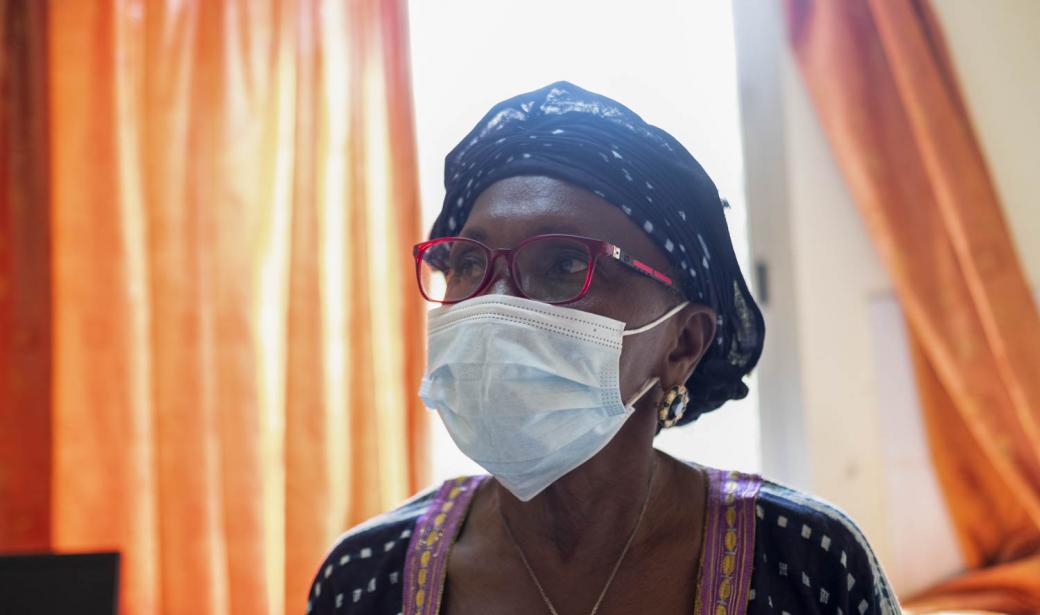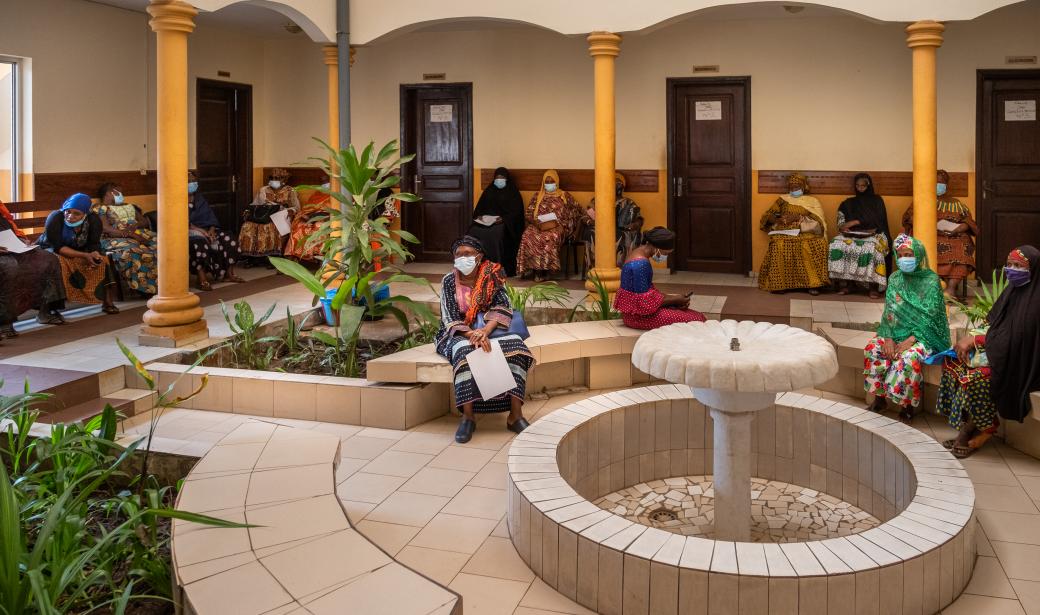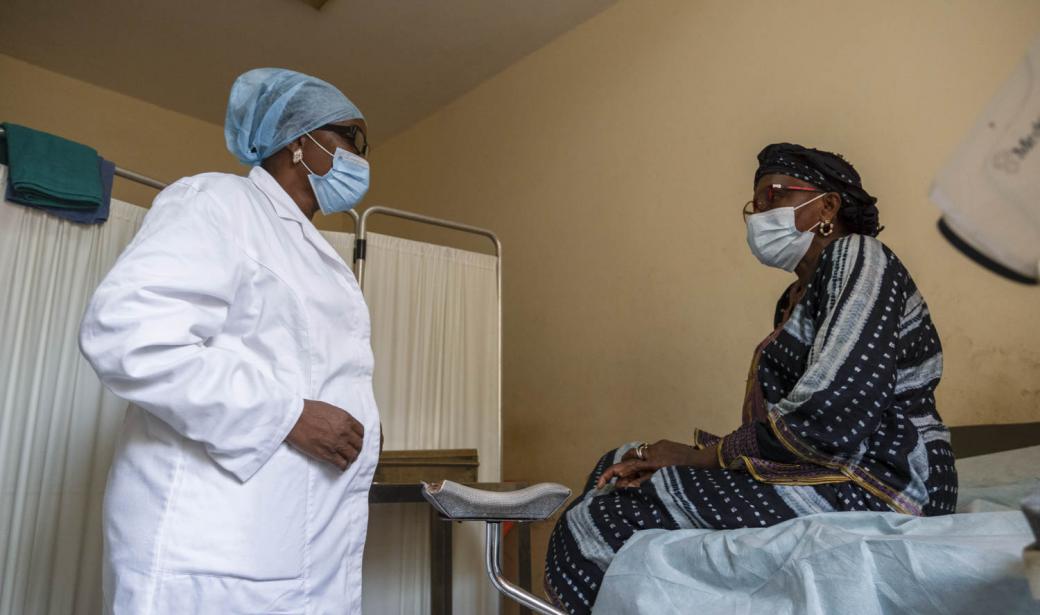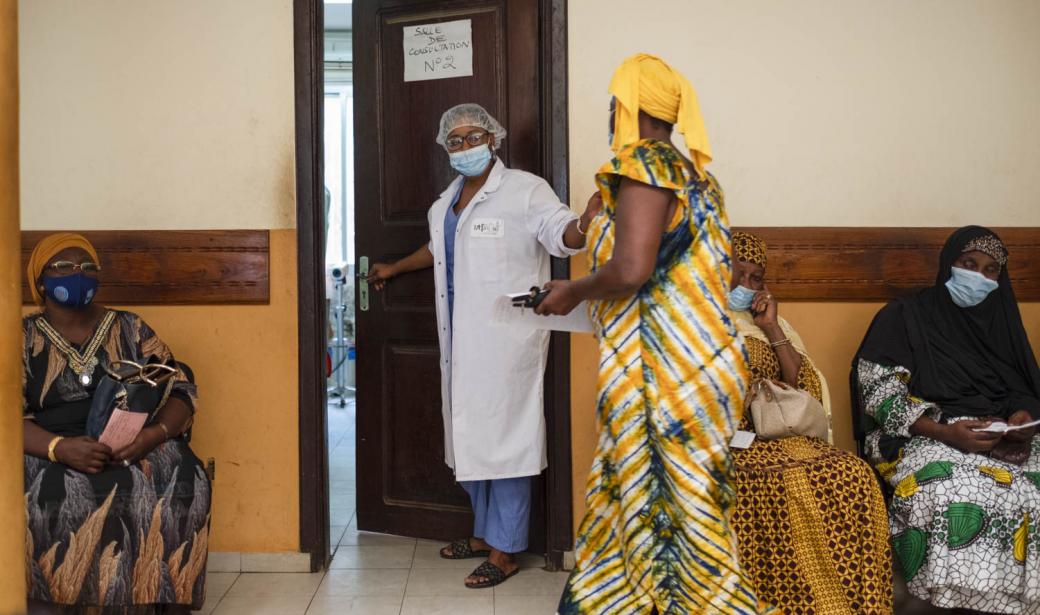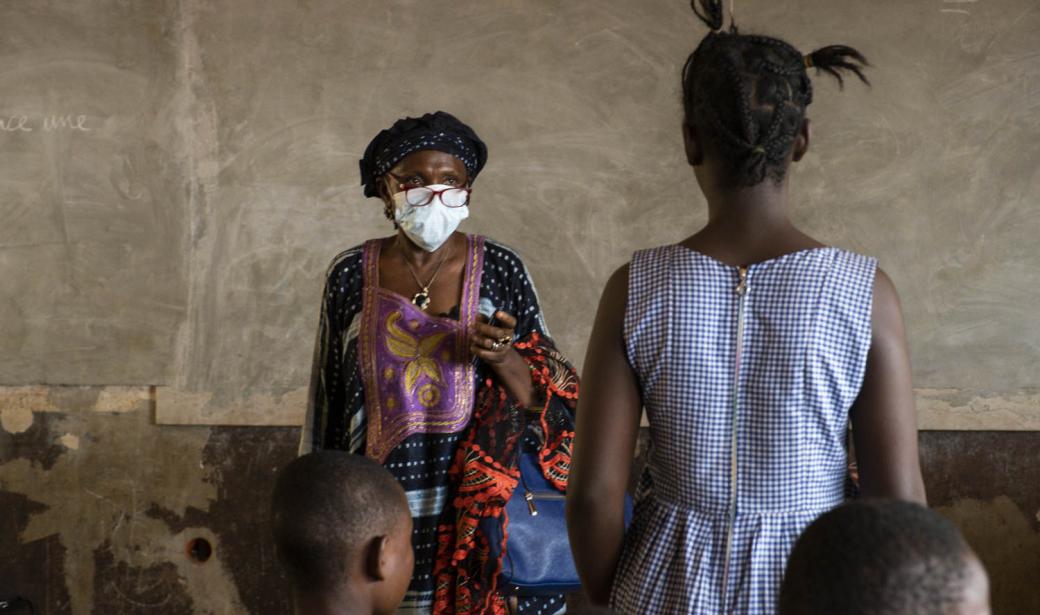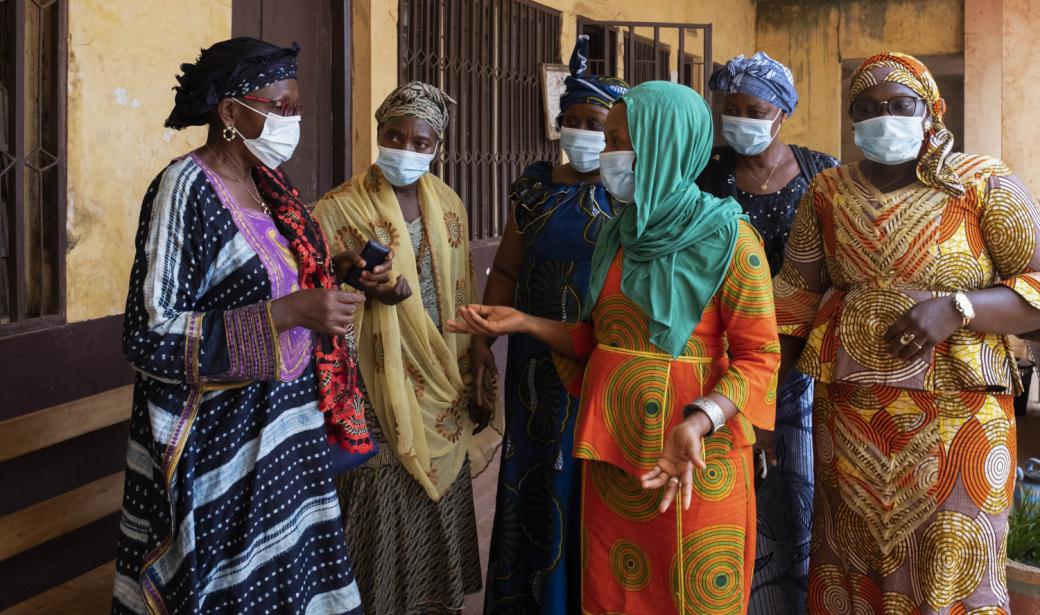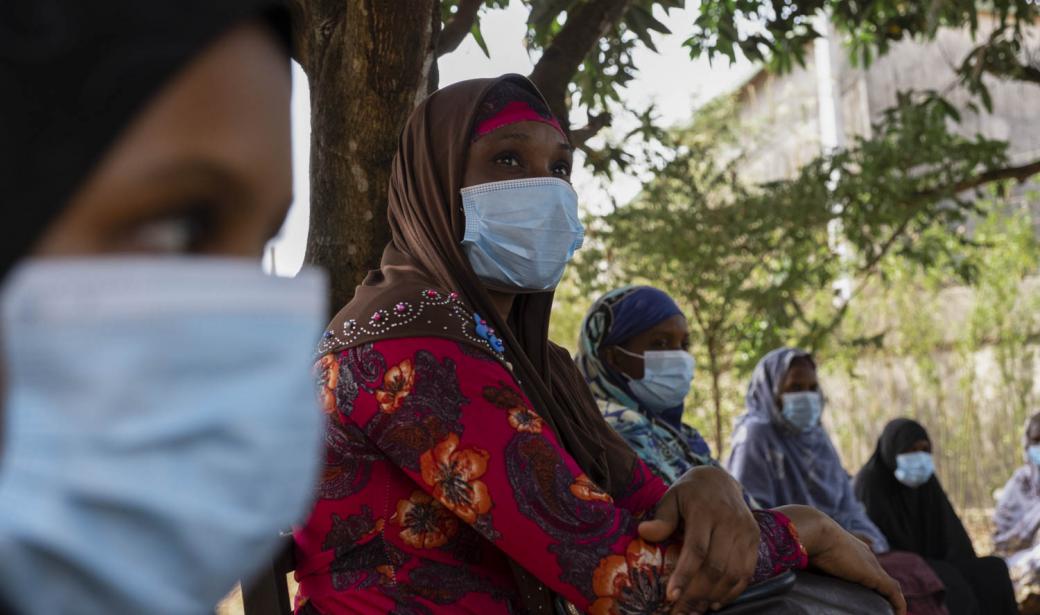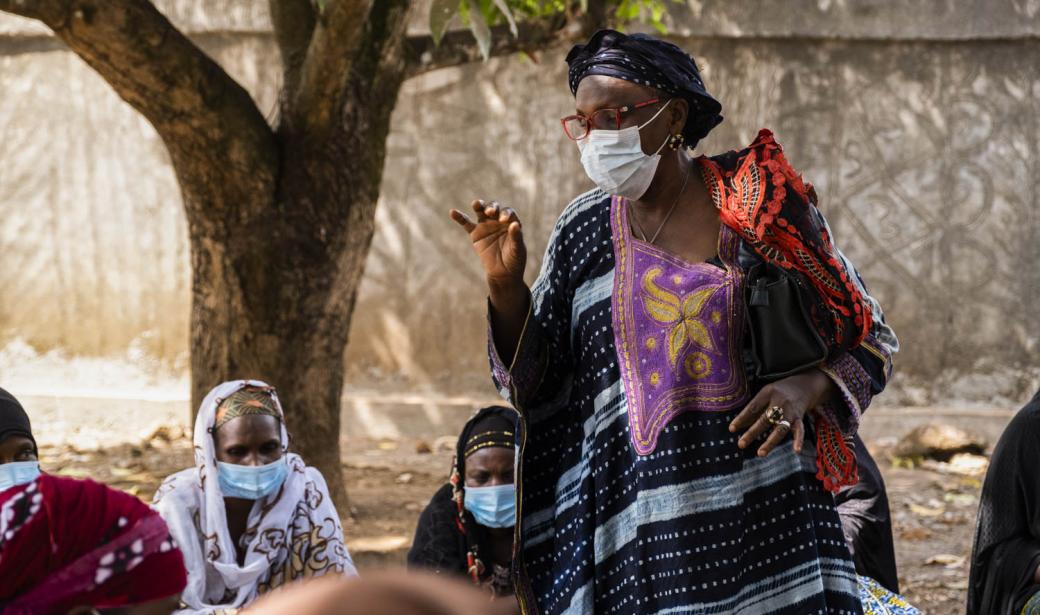Conakry – Kadiatou Diallo feared she would not survive surgery to treat her cancer after she was diagnosed with the disease 12 years ago. Care provided at West Africa’s flagship Francophone Regional Centre for Training and Prevention of Gynaecological Cancers in Guinea’s capital Conakry has seen the 52-year-old Kadiatou overcome the cancer. Amid the COVID-19 pandemic, essential health services such as cancer care and prevention have been disrupted across many countries in Africa. A World Health Organization (WHO) survey in early 2021 found that 95% of the 40 countries that provided responses reported disruptions to health services in varying degree. However, countries have striven to restore services over the past year.
It was not the first time that Kadiatou had heard of this disease. “Some of my neighbours had died of cancer and I thought the only outcome of a cancer diagnosis was death - a quick and painful death. That’s why I was so shaken."
With strong support and encouragement from her husband, Kadiatou went to the centre where she immediately received care from medical personnel.
The Francophone Regional Centre for Training and Prevention of Gynaecological Cancers is one of the flagship initiatives put in place by the government to fight cervical cancer.
“The centre also serves as a gynaecological cancer prevention training hub for countries across the region. We organize many regional trainings of trainers, which also provide an opportunity for specialists from the region to meet and exchange best practices,” says Professor Namory Keita who heads the institution.
“Since I first came here, I have always been well taken care of by the team at the centre. Before my operation, I was quite worried because I’d never had surgery. I thought of my young children and wondered if they were going to have to live and grow up without me. But the doctors allayed my fears and everything went well.”
The centre's equipment for screening and treating precancerous lesions was provided by WHO, which also finances training sessions at both the national and regional levels. The trainings provide countries with tools to improve their ability to screen for and provide preventive cervical cancer treatments.
WHO has also helped introduce cervical cancer screenings into Conakry’s five communal medical centres by providing equipment and training for health workers. WHO also supports, among other things, public awareness campaigns through local radio stations on how to prevent and treat cervical cancer.
"I mostly speak to girls. I tell them to make sure they have impeccable hygiene. For example, I give them details on how a girl should do her personal hygiene. I tell them to look after themselves keep in good health. Usually, they don't talk about these things with their families, which is why I talk to them about it. I explain to them the signs of cancer and the importance of paying attention to your body. Now they can share this information with adults at home. Usually, girls at elementary school levels are interested in these topics. They ask questions and want me to talk about it a lot more. There are about 300 of them at the school.”
“I urge them to get tested regularly to prevent a severe form of cancer. An illness is an illness, but regular monitoring always defeats the illness. With cancer, the earlier you go, the more likely you are to be cured.”
Kadiatou's efforts are bearing fruit. Several of her colleagues have requested more information on the subject and seven of them have already visited the screening centre after Kadiatou's advice.
“The women of our [group] are between 23 and 60 years old. Most of them have not been to school so they find [early detection and preventive measures] difficult to understand and think that it is only when you are sick that you should go to the hospital. I take advantage of the meetings to make them aware of cervical cancer, in particular the importance of having regular gynaecological check-ups as a preventive measure. I explain to them what cervical cancer is - its signs, its dangers, its risks. I also talk about breast cancer. The hardest part in this fight is convincing women to get tested early. Through these sessions, more than 10 women have already been referred and gone to the screening centre. "
“With my groups of friends and colleagues, my neighbours, and even within the family, to my cousins and nieces, I have spoken about this disease to more than 200 women. Ignorance is our number one enemy. When I was diagnosed, I remember some neighbours asking me what I had done to get this disease. And some went so far as to say, "It's because you don’t take good care of yourself."
“When I speak to women, I realize that there are too many misconceptions. Among these ideas, is the same one I had myself at the beginning: that the only outcome of cancer is death. But I tell them that I am living proof that cancer is not a death sentence. We can be cured of it, and we can live happily afterwards. It is very important to keep hope alive and to share that hope. I am a survivor and I am committed to this. "
Chargé de la communication et de la promotion de la santé
OMS Guinée
Email : konatei [at] who.int (konatei[at]who[dot]int)
Communications Officer
WHO Regional Office for Africa
Email: dialloka [at] who.int (dialloka[at]who[dot]int)



